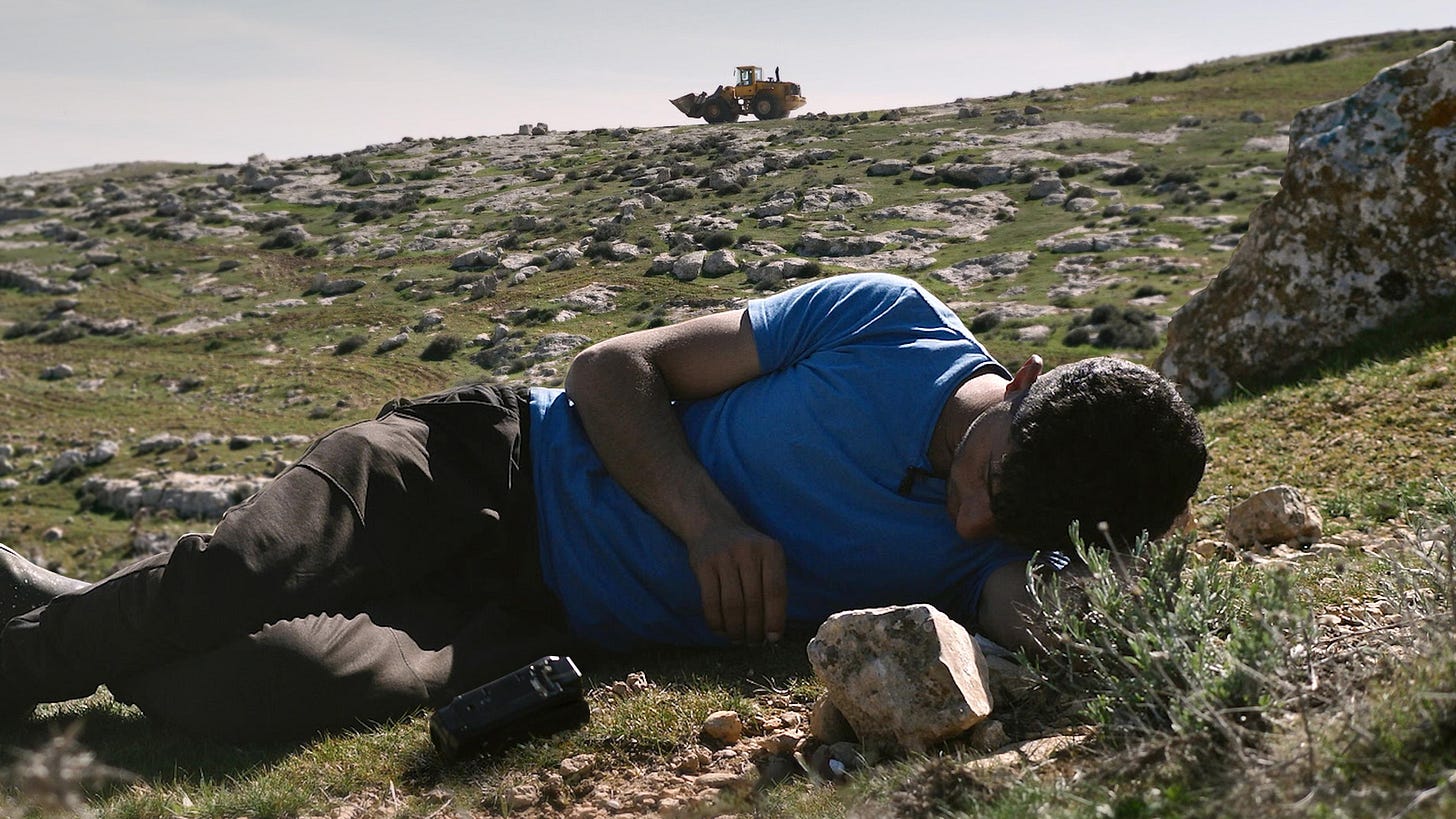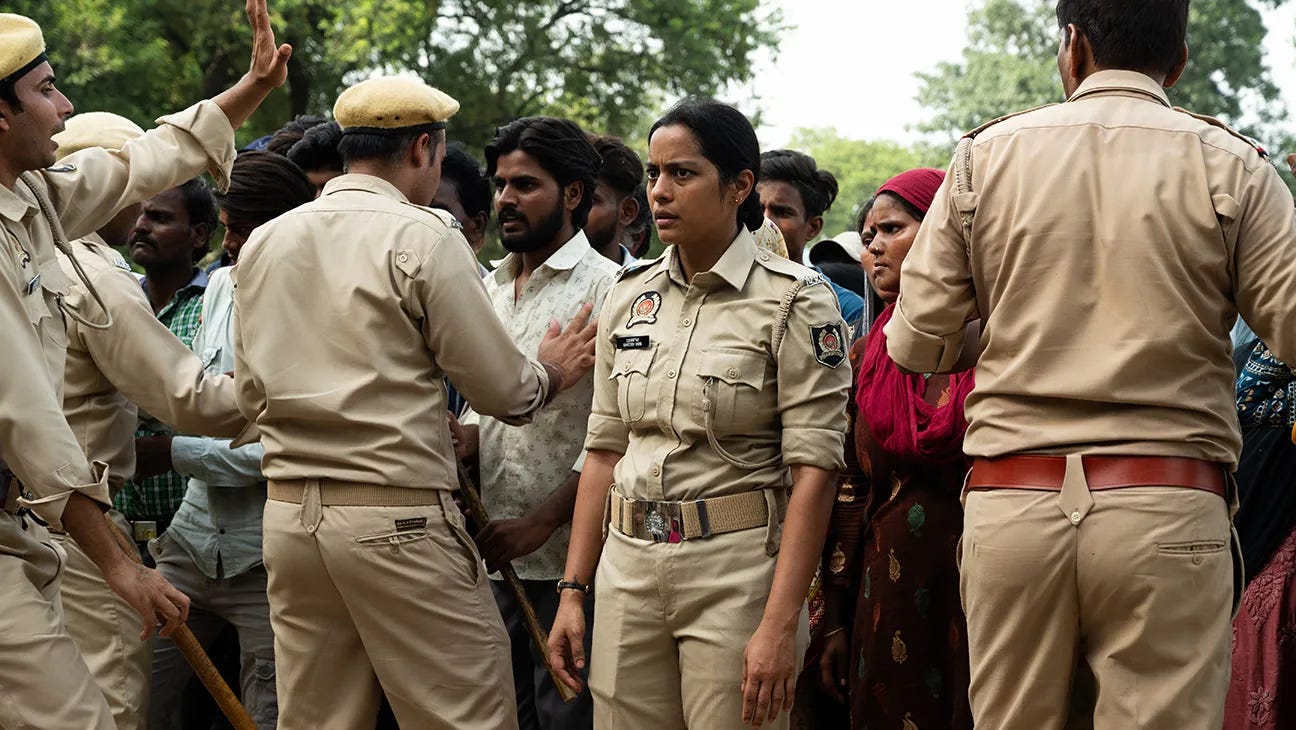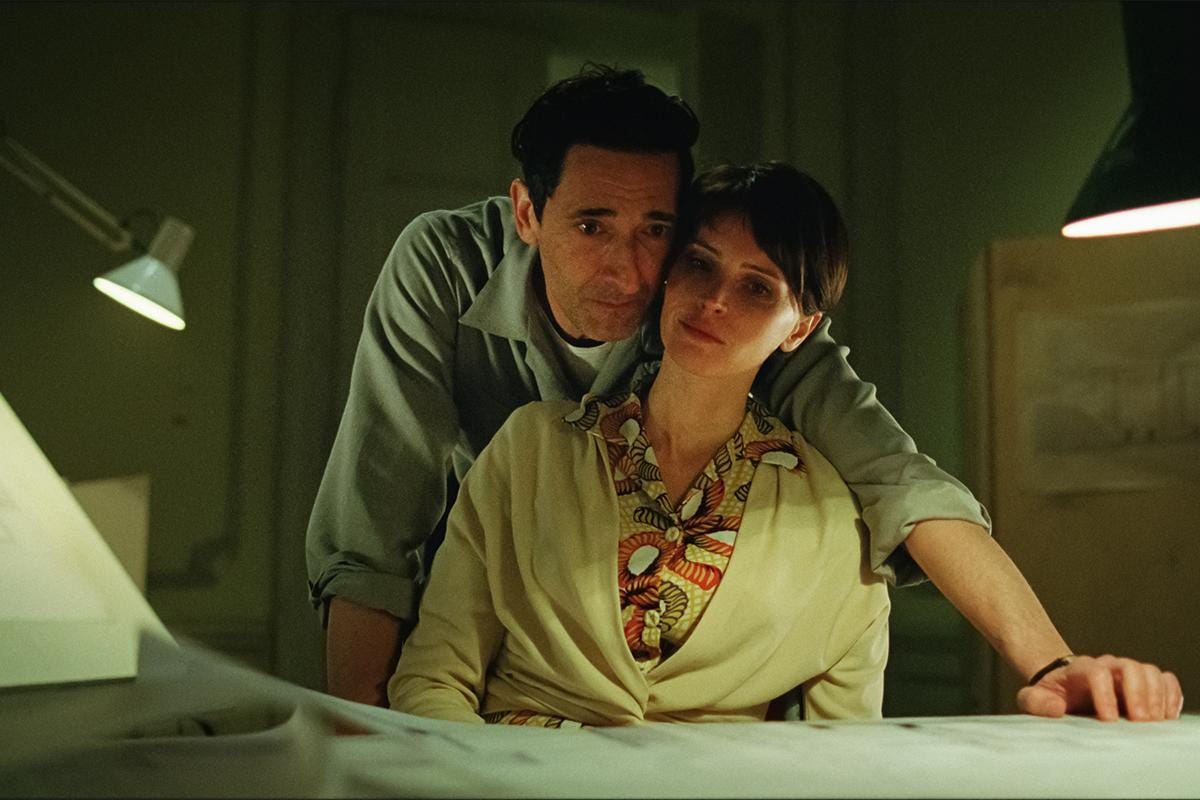Stories Without Borders: The Top 10 Films of 2024
In a year of pure cinematic excellence, world cinema reigned supreme.
Cinema has a way of surprising me every year, and 2024 was no exception. Filmmakers from around the world delivered some of the most exciting, thought-provoking, and memorable works I’ve encountered in recent memory.
This year, world cinema truly stole the spotlight. Of the 10 films that made my final list, only two were in English, with the rest showcasing the incredible range of storytelling happening in international cinema. It’s always thrilling to see how stories from different cultures can resonate so universally. Another standout aspect of this year’s selections is that half the films were either directed or co-directed by women. This is an encouraging sign of a slowly but steadily broadening creative landscape, where more voices are being heard and celebrated.
Narrowing down this list was anything but easy. My starting point was a longlist of 27 films, each of which made a strong case for inclusion. After much deliberation, I trimmed it to 20, then to 15, with five ultimately landing as honorable mentions. The process of choosing the final 10 felt like an impossible balancing act, with every cut making me second-guess myself. But if anything, this struggle only highlights just how exceptional 2024 has been for cinema.
Before diving into the top 10, I want to give a well-earned nod to these honorable mentions:
A Real Pain (Jesse Eisenberg)
Didi (Sean Wang)
Civil War (Alex Garland)
Love Lies Bleeding (Rose Glass)
How to Make Millions Before Grandma Dies (Pat Boonnitipat)
These films may not have made the final cut, but they’re remarkable in their own right and deserve recognition.
And now, without further ado, here are the 10 films that defined 2024 for me. Each one pushed boundaries, inspired reflection, and reminded me why I’m so in love with movies in the first place.
10. ‘Janet Planet’ (dir. Annie Baker)
Janet Planet, written and directed by Annie Baker, delves into the complex, suffocating relationship between Janet (Julianne Nicholson) and her daughter Lacy (Zoe Ziegler). Set in 1991, the film opens with Lacy threatening suicide to return home from camp, revealing her dependency on her mother’s overwhelming presence. As the story unfolds, the tension between them intensifies, with Janet’s New Age ideals and Lacy’s growing need for independence creating an emotional battlefield.
The narrative is structured in three acts, each introducing a new figure who influences Lacy’s view of her mother. Wayne (Will Patton), the uninspiring boyfriend, brings chaos to their lives, while Regina (Sophie Okonedo) challenges Janet’s illusions. The final act introduces Avri (Elias Koteas), a cult-like figure who further disrupts their fragile world.
Baker’s direction evokes a theatrical, almost surreal atmosphere, using mirrors and fragmented imagery to reflect inner turmoil. Nicholson’s portrayal of Janet is deeply revelatory and emotional, her eyes conveying years of unspoken pain, while Ziegler’s Lacy beautifully captures both innocence and a longing for freedom. Janet Planet is a haunting exploration of love, dependency, and the hidden struggles that shape mother-daughter bonds.
9. ‘Dahomey’ (dir. Mati Diop)
French filmmaker Mati Diop’s Dahomey is a profound documentary that examines the return of stolen artifacts to Benin and the deeper identity crisis surrounding colonization. The film focuses on the return of 26 African artifacts to the country in 2021, including sacred totems taken by French soldiers in 1892 after the Second Franco-Dahomean War. While the repatriation is viewed as a victory, it raises questions about cultural loss and the meaning of reclaiming history.
Diop blends magical realism with documentary, allowing the artifacts, like King Ghezo’s likeness, to express their own thoughts on their return. Through these voices, the film highlights the tension between the past and the present, with the artifacts struggling to find their place in a world that no longer fully remembers them.
The documentary also features a compelling debate among students at the University of Abomey-Calavi, exploring the implications of the return and the broader issues of cultural ownership. The students discuss how the looted items represent a loss of cultural identity and a rebranding of France’s colonial history. Diop powerfully poses the question: who truly owns a colonized culture? While Dahomey offers no easy answers, it nonetheless invites critical reflection on the ongoing struggle for cultural restitution.
8. ‘No Other Land’ (dirs. Basel Adra, Hamdan Ballal, Yuval Abraham, Rachel Szor)
No Other Land is a powerful documentary that exposes the ongoing forced displacement of the Masafer Yatta community on the West Bank, filmed through the eyes of Palestinian activist Basel Adra. Growing up amid the destruction of his home, Adra documents the violent and systematic demolition of Palestinian lives by Israeli military forces.
The film captures the brutal reality of the community’s struggle for survival, focusing on Adra’s family, especially his father, a key figure in the resistance. The camera becomes a tool not just for documenting, but also for defying the occupation, giving voice to those whose lives are being erased.
Adra’s footage reveals the painful reality of forced evictions, destroyed homes, and broken families, while also highlighting the toll of activism—emotionally and physically. Moments of solidarity, like the bond between Adra and Israeli journalist Yuval Abraham, offer fleeting respite from the harsh conditions. Ultimately, No Other Land is a call to action, challenging viewers to confront the injustice facing the Masafer Yatta community and offering no easy solutions, only the urgent need for global attention and support. It’s an unflinching look at the cost of resistance against oppression.
7. ‘Flow’ (dir. Gints Zilbalodis)
Flow is a wordless, enchanting animated journey from Latvia that takes audiences on a magical, contemplative adventure with a mismatched group of animals. A cat, dog, lemur, capybara, and secretary bird find themselves on a boat navigating a vast, flooded world after a giant tsunami submerges the land. Unlike mainstream animated features, Flow offers a dreamy, epic experience that is both perilous and beautiful, with the animals focused solely on survival, exploring, and building unlikely bonds.
The animation, while low-fi, creates a sense of awe through its vast, untouched landscapes filled with ancient ruins and mysterious monuments. The animals' interactions, driven by necessity rather than dialogue, slowly evolve, with each character undergoing subtle transformations. As they journey through this expansive world, they learn to cooperate, face dangers, and adapt to their environment.
The film’s simplicity is its strength, as it entrusts the audience with interpreting its themes of connection, survival, and the natural world. With a stunning score by director Gints Zilbalodis and Rihards Zalupe, Flow is a poetic experience that invites viewers of all ages to embrace the unknown and the power of togetherness. A rare gem, this film promises a wordless journey that ranks among the most captivating experiences in the annals of animation.
6. ‘Santosh’ (dir. Sandhya Suri)
Santosh offers a searing, nuanced portrayal of one woman’s confrontation with systemic inequality, prejudice, and moral ambiguity. In this stark narrative debut, Sandhya Suri unfolds a deeply personal yet profoundly political story against the backdrop of rural Northern India, where caste, gender, and power intertwine with devastating consequences.
Shahana Goswami delivers a career-defining performance as Santosh, a newly widowed woman thrust into her husband’s role as a constable under India’s Compassionate Appointment scheme. Her journey—from reluctant acceptance of the job to grappling with the harsh realities of a corrupt and casteist police system—is rendered with quiet intensity, inviting viewers to reflect on the compromises survival often demands.
With its raw performances, morally complex characters, and unflinching gaze at the structures that perpetuate injustice, the film forces us to confront uncomfortable truths about the nature of power and complicity in a flawed system. Suri’s direction, combined with Goswami’s layered portrayal and Sunita Rajwar’s standout turn as the pragmatic yet ethically murky Inspector Sharma, crafts a story that lingers long after the credits roll. Santosh is not a tale of redemption but of survival—a quiet, devastating meditation on what it means to uphold justice in a world designed to deny it.
5. ‘The Seed of the Sacred Fig’ (dir. Mohammad Rasoulof)
Mohammad Rasoulof’s The Seed of the Sacred Fig is a thrilling, genre-defying film that moves seamlessly between political intrigue, family drama, and a gripping mystery. The story centers on Iman (Missagh Zareh), an Iranian patriarch whose recent promotion to investigator brings both new responsibilities and unraveling paranoia. His family, particularly his wife Najmeh (Soheila Golestani) and daughters Rezvan (Mahsa Rostami) and Sana (Setareh Maleki), are caught in the crossfire as their country is in turmoil, with protests mounting against the government.
Rasoulof, who filmed the movie in secret after being arrested for his previous work, masterfully weaves a narrative full of moral ambiguity, where no choice seems free of consequences. Tensions rise within the family as Iman’s growing obsession with control and his distrust of the state trickles into his personal life. The film sharply critiques both familial breakdowns and the societal pressures that stoke them.
What makes The Seed of the Sacred Fig so striking is its raw, unflinching portrayal of Iran’s political climate and its impact on everyday lives. Rasoulof’s deft direction and the stellar ensemble cast paint a portrait of resilience and despair, drawing viewers to reflect on loyalty, betrayal, and the high price of resistance.
4. ‘Close Your Eyes’ (dir. Victor Erice)
Victor Erice’s Close Your Eyes is a cinematic triumph, marking the legendary filmmaker’s return after 31 years with a poignant, genre-defying epic. Blending elements of Westerns, ghost stories, and meditative dramas, Erice crafts a profound exploration of memory, regret, and redemption. At its heart is Miguel Garay (Manolo Solo), a former filmmaker turned recluse, whose search for his missing best friend Julio (Jose Coronado) becomes a deeply personal journey through fragmented pasts and unresolved emotions.
The film begins with an enigmatic prologue set decades earlier, introducing the film-within-a-film Miguel directed, with Julio as its star. Years later, Miguel appears on a reality TV show, igniting his relentless quest for answers. Through a mosaic of conversations—with an old editor, an ex-lover, and Julio’s daughter Ana (Ana Torrent)—Miguel pieces together old footage and forgotten truths. Erice imbues the narrative with patient intensity, his 160-minute runtime unraveling revelations with deliberate care, always probing deeper into Miguel’s motivations and the toll of his pursuits.
Erice’s return is both a homage to cinema and a deeply personal reflection on life’s fleeting nature. Hauntingly beautiful and resolutely ambiguous, Close Your Eyes is a masterpiece that invites viewers to honor the past while embracing the uncertainty of what lies ahead.
3. ‘Evil Does Not Exist’ (dir. Ryusuke Hamaguchi)
Ryusuke Hamaguchi’s Evil Does Not Exist opens with a mesmerizing sequence: tranquil shots of wintry treetops paired with Eiko Ishibashi’s evocative score. Set in the snow-covered village of Mizubiki, the film immerses us in the lives of Takumi (Hitoshi Omika) and his young daughter Hana (Ryo Nishikawa), who live in quiet harmony with their natural surroundings.
When corporate representatives arrive to propose a glamping site, the villagers push back, fearing environmental disruption. Hamaguchi portrays this clash with subtlety, avoiding villainy and instead exploring the disillusionment of the corporate duo, whose awkward integration into village life reveals both humor and depth.
True to Hamaguchi’s style, the film unfolds patiently, blending long takes with quiet yet emotionally charged moments. It offers an understated but powerful eco-parable, contemplating humanity’s fragile relationship with nature and the cost of progress. The abrupt tonal shift in the final act underscores the film’s central theme: the precariousness of harmony, both ecological and human.
Through breathtaking cinematography and a resonant score, Evil Does Not Exist emerges as an exquisite, thought-provoking work, inviting us to reflect on what it truly means to coexist with nature—and each other.
2. ‘The Brutalist’ (dir. Brady Corbet)
Brady Corbet’s The Brutalist revives the spirit of classic epics, merging sweeping scale with deeply personal storytelling. Adrien Brody delivers a career performance as Laszlo Toth, a Hungarian-Jewish architect and Holocaust survivor seeking a fresh start in post-war America. Joined by his wife, Erzsebet (Felicity Jones), Toth navigates the promise of opportunity and the weight of sacrifice. A wealthy patron (Guy Pearce) offers him a chance to build a sanctuary, but their partnership exposes the tensions between artistic integrity and survival.
Shot in breathtaking 70mm by Lol Crawley, the film’s visual composition evokes the grandeur of classics like Lawrence of Arabia while remaining grounded in the emotional intricacies of its characters. Daniel Blumberg’s haunting score amplifies the atmosphere, enhancing the story’s layered themes of identity, ambition, and resilience.
More than an immigrant’s tale, The Brutalist examines how systems of power shape individual lives and creative expression. Corbet’s direction is both precise and evocative, resulting in a film that feels timeless and profoundly urgent. By exploring the intersection of personal dreams and societal expectations, it stands as a testament to the enduring struggle for meaning and belonging in a world often resistant to both.
1. ‘All We Imagine as Light’ (dir. Payal Kapadia)
Payal Kapadia’s All We Imagine as Light explores the elusive concept of “home” through the intertwined lives of three women navigating Mumbai’s vastness and impermanence. Nurses Prabha (Kani Kusruti) and Anu (Divya Prabha) share a cramped apartment and contrasting personalities, while cook Parvaty (Chhaya Kadam) fights to save her tenement from demolition. Each woman grapples with her own quest for stability, anchoring the narrative in questions of identity, resilience, and the fragile connections that provide a sense of belonging.
Kapadia’s storytelling is patient and understated, avoiding melodrama in favor of quiet reflection. The film’s richly textured visuals capture Mumbai’s relentless pace and hidden moments of calm, while the characters’ relationships unfold in small gestures and silences that feel deeply authentic. A second-act shift to a coastal village briefly disrupts the film’s rhythm but adds a meditative dimension, allowing the women to reflect on their desires and choices.
Ultimately, Kapadia presents “home” as more than a physical place—it’s found in fleeting moments of connection and mutual understanding. With its nuanced performances and contemplative tone, All We Imagine as Light is a tender, resonant portrait of humanity’s enduring pursuit of belonging amidst life’s uncertainties.














